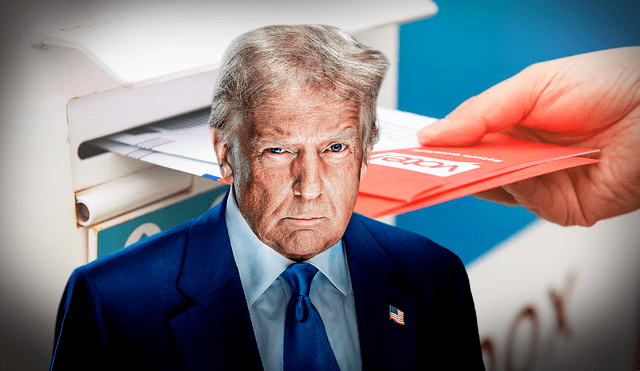Donald Trump signs executive order requiring proof of citizenship to vote, sparking controversy
President Donald Trump signs an executive order requiring proof of U.S. citizenship to vote, targeting voter ID laws and mail-in voting. The move is expected to face legal challenges from voting rights groups.

In a move set to overhaul federal election procedures, President Donald Trump signed an executive order on March 25, 2025, that mandates U.S. citizens must provide proof of citizenship when registering to vote.
The executive order includes sweeping changes such as stricter voter identification requirements, new mail-in voting restrictions, and the targeting of election fraud. As anticipated, the order is expected to face significant legal challenges from voting rights groups, who argue that it will disenfranchise millions of eligible voters.

ALSO SEE: Jasmine Crockett faces backlash after mocking Greg Abbott’s wheelchair at LGBTQ rights event
What does Trump’s new executive order mean?
Donald Trump's new executive order will bring many changes to the ways Americans vote. Starting with the requirements to get a federal voter registration. To acquire one, you must provide proof of U.S. citizenship presenting any of these documents:
- REAL ID
- Passport
- Other government-issued photo identification.
According to Trump's administration, this change is made to challenge voter fraud, even when there has been no evidence of it ever occurring. This new executive order also threatens states which do not adjust to these new measures with financial penalties, potentially limiting federal funding.
Donald Trump targets mail-in voting
Mail-in voting is also being affected by this new executive order. It is not a secret Donald Trump is not a fan of this voting method and largely blames it for his losing campaign in 2020. That is why, Attorney General Pam Bondi has been instructed to ensure that ballots arriving after Election Day are not counted.
This new strategy also highlights information-sharing agreements with state election officials, so they can identify and punish those committing voter fraud, or who are registered to vote even when they are ineligible.
ALSO SEE: John Ratcliffe and Tulsi Gabbard defend handling of signal chat incident in Senate hearing
Main concerns about Trump’s executive order on voting:
- Impact on vulnerable communities: The order may disproportionately affect seniors, minority groups, low-income individuals, and students.
- Increased barriers to voting: Requiring specific forms of identification, such as passports or REAL ID cards, could create obstacles for eligible voters who may not have easy access to these documents.
- Potential for widespread disenfranchisement: Millions of eligible voters could be prevented from registering or casting their ballots due to stricter ID requirements.
- Legal and constitutional challenges: The executive order is expected to face legal opposition for potentially exceeding presidential authority in federal election oversight.
- Shift in Election control: The directive could centralize power over elections in the executive branch, disrupting the long-standing state and local management of voting processes.
Trump’s executive order on voter registration: Citizenship proof requirement sparks legal debate
Before the 2024 elections, Trump and his allies spread unsubstantiated claims about a supposed risk of non-citizens voting in large numbers. However, the federal voter registration form already requires registrants to swear, under penalty of perjury, that they are U.S. citizens and provides identification mechanisms, such as a Social Security number or a driver’s license. Additionally, those who attempt to vote illegally may face severe penalties, including imprisonment and deportation. Previous studies have shown that such cases are extremely rare.
Despite this, Republicans have insisted on the need for documentary proof of citizenship, promoting measures such as the SAVE Act, which seeks to tighten registration requirements. Although the House of Representatives has shown support for this initiative, the Senate represents a significant obstacle to its approval. Facing this legislative uncertainty, Trump has resorted to an executive order to implement these changes, though legal experts warn that it could be unconstitutional and contradict existing election laws.
“It is illegal in many aspects,” said Sean Morales-Doyle, director of voting rights at the Brennan Center for Justice, a nonprofit organization that studies and advocates for voting rights. The order instructs the Election Assistance Commission, a small bipartisan independent agency, to implement several changes, including modifications to the federal voter registration form. However, Morales-Doyle warned that the president does not have the authority to order the commission to act, further reinforcing doubts about the measure’s legality.











